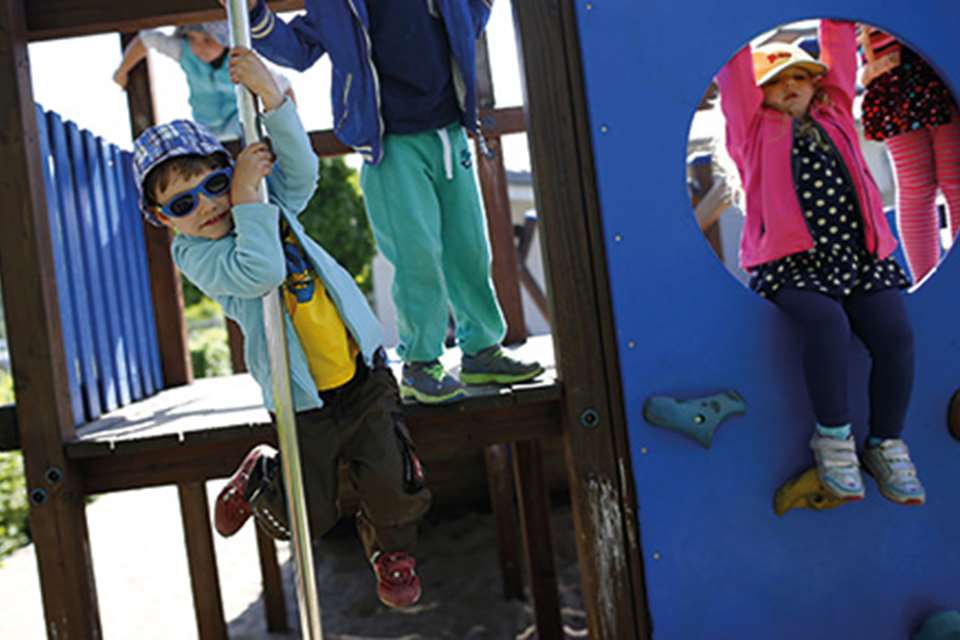Nursery Management: Qualifications Round-Up - Still on course
Charlotte Goddard
Tuesday, October 27, 2020
With the launch of the new T-Level qualification in September and new apprenticeship standards under way, this period should be a busy time for training providers – but Covid-19 has posed a variety of challenges. Charlotte Goddard reports
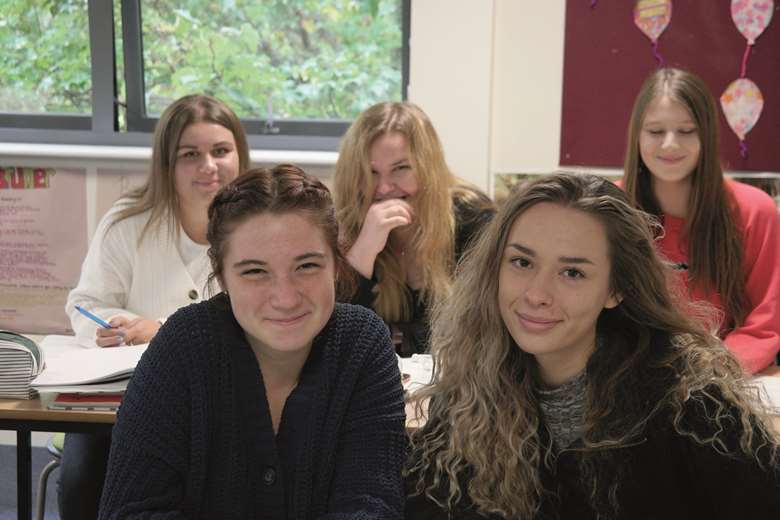
This year has seen a shake-up of qualifications and training in the early years. The first apprentices to take part in the new Level 3 apprenticeship are now reaching their end-point assessments, while the first cohort of students on the new Level 2 apprenticeship, based on standards launched in March, are just starting their studies.
Meanwhile in September, students at 33 schools and colleges began studying for a new qualification, the Education and Childcare T-Level. The two-year, college-based vocational programme of study at Level 3 is equivalent to three A-Levels and includes ‘a minimum’, for childcare students, of 750 hours’ work placement, according to the qualification specification.
Early Years Education and Childcare is a second-year specialism (alternatives are Assisting Teaching, or Supporting and Mentoring Students in Further and Higher Education). An Education and Childcare T-Level will meet the Early Years Educator criteria, so those with the qualification can count in Level 3 ratios.
T-LEVELS
The road to T-Levels has been bumpy, with some providers that were scheduled to launch in 2020, such as York College and University College Birmingham, delaying delivery of the Education and Childcare qualification until next year. Others have found recruitment to be an issue, despite the Government’s £3 million ‘NexT Level’ marketing campaign.
Lordswood Girls’ School and Sixth Form Centre in Birmingham, for example, was only able to recruit six students to the course, having set a target of 20. The school says it decided to offer the T-Level as it thought the BTEC award in health and social care would no longer be funded. However, a nearby college is still running the BTEC, and the school lost some students to it.
York College’s Alison Davis, head of early years and education, says ‘a strong factor’ in postponing T-Levels (the early years pathway will be offered from 2021) was that ‘tutors were in the midst of adapting the delivery of their existing courses in light of a range of likely Covid-19 scenarios, which included development of online resources, and this was likely to conflict with the production of a high-quality new T-Level programme’. She adds that offering prospective students advice about which qualifications would best suit them while in lockdown was also a challenge for a new course.
On the other hand, Chichester College Group has had to form extra T-Level classes after enrolling 39 Education and Childcare students against a target of 18, and Cirencester College also did not have problems with recruitment. ‘The numbers are around what we expected,’ says Clare Smith, course leader, psychology and childcare. ‘We were a bit worried because the T-Level is quite different from previous courses we have run, and we thought that might have an impact on numbers, but it hasn’t.’
Placements in a pandemic
Employers can access grants of up to £750 from the education provider to provide a T-Level placement as part of a pilot scheme. Some settings are still happy to take students despite the pandemic.
‘We would take students still for placements, we would just follow the same precautions that we have done with any other staff members regarding the measures we have put in place for Covid and limit them to specific bubbles,’ says Clare Roberts, chief executive of Kids Planet Day Nurseries. ‘We haven’t as of yet confirmed any T-Level placements, but my understanding is colleges are just starting to get in touch with providers now.’
Others, however, are not so keen. Kate Howarth, manager of Apple Tree Private Day Nursery, has decided that the setting will not take any students for at least this term. ‘The main problem is that the students are still in a college/university environment for part of the week and then with us for two or three days, so the risks outweigh the benefits for us,’ she says. ‘Some students are part of bubbles of up to 150 people. We currently don’t allow any parents, carers or visitors into the building, so it seems silly to let in students and their tutors.’
Julie Hyde, executive director at Cache, says T-Level providers have flexibility over when to run placements over the two-year course. ‘A lot of providers are looking at the spring term, others may be on placement sooner,’ she says. ‘There is a lot of innovation in the way T-Levels are being delivered.’
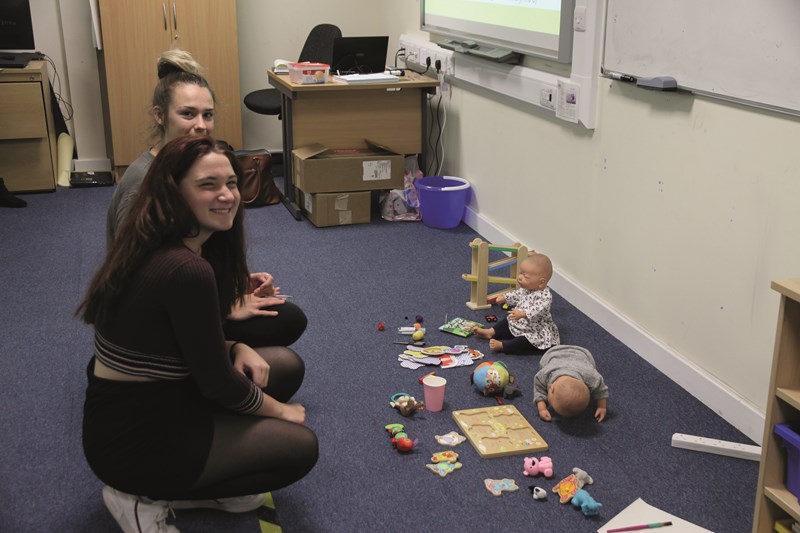
APPRENTICESHIPS
In March 2020, a new Level 2 apprenticeship standard for early years practitioners was approved for delivery. The standard was created by a trailblazer group headed by the Early Years Alliance’s director of quality improvement, Michael Freeston, and sits alongside a Level 3 Early Years Educator Apprenticeship, launched in April 2019. The first two Early Years Alliance apprentices started the new Level 2 qualification in September.
‘I am delighted we now have an operational Level 2 Apprenticeship Standard,’ says Mr Freeston. ‘Recruitment is now under way, and I am pleased there is real interest from people wishing to start their careers in early years.’
The new standard-based childcare and education apprenticeships differ from the former framework-based ones as they have an end-point assessment period of up to three months after the programme, in which the learner is tested by an independent assessor. They also attract more funding - up to £4,000 for a Level 2 and £6,000 for a Level 3.
As the first Level 3 cohort reaches their end-point assessment, providers are able to work out how much the programme has cost, and if the funding is fair. There are some concerns that funding bands may be lowered to bring childcare funding more in line with that of health and social care apprenticeships.
Another trailblazer group has been in place since the end of 2018, developing standards for early years apprenticeships at Levels 5 and 6. Before Covid-19 hit, work had already stalled, owing to a standoff with the Institute for Apprenticeships and Technical Education (IfATE) over whether the apprenticeships should include a mandatory Level 5 qualification, as desired by the trailblazer, or merely a Level 3, as favoured by the institute. The group is now meeting virtually, and ‘the standard will be published when the end-point assessment is signed off by IfATE,’ says chair Laura Upton, workforce improvement advisor at Leicestershire County Council.
**UPDATE- the Level 5 standard was published on 27th October. For more information see here
The Level 6 standard has also been written and is awaiting development approval from IfATE. ‘They are still unconvinced that it is distinctly different from the Level 5 and that it is needed by the sector,’ says Ms Upton.
Numbers down
Apprenticeships have been hard hit by the pandemic. The number of people starting an apprenticeship between March and July 2020 was down 47.2 per cent compared to the same period last year.
‘From February to the end of August, apprentice intake has been very low – less than five per cent compared to the same time last year,’ says Chris Baker, finance director at childcare specialist Crackerjack Training. ‘Nurseries have been struggling with a lot of staff on furlough, so they are not in a position to take on new apprentices.’
To encourage employers to do just this, the Government has introduced a grant scheme, which has been welcomed by the early years sector. Employers can apply for £2,000 for each apprentice aged 16 to 24 they take on, and £1,500 for apprentices aged 25 and over, in addition to the existing £1,000 they may receive for apprentices aged 16 to 18, care leavers and those under 25 with an Education, Care and Health plan. The scheme ends in January 2021.
Figures for new apprenticeships in August and September had not been published at the time of going to press, but Mr Baker says he has seen an upturn. However, there are issues with the scheme. ‘The incentives probably don’t go far enough,’ says Simon Ashworth, Association of Employment and Learning Providers (AELP) chief policy officer. ‘It is about new hires, there is little support for learners already on programmes who are likely to get displaced.’
‘The incentive hasn’t had a major impact as employers still need income to pay salaries,’ says Nina Sian, head of employer engagement at London South East Colleges. ‘When the incentive came out I did a mailshot of around 6,000 and got about five responses – I thought there would be higher uptake. Small employers just don’t have that income and can’t afford to pay salaries.’
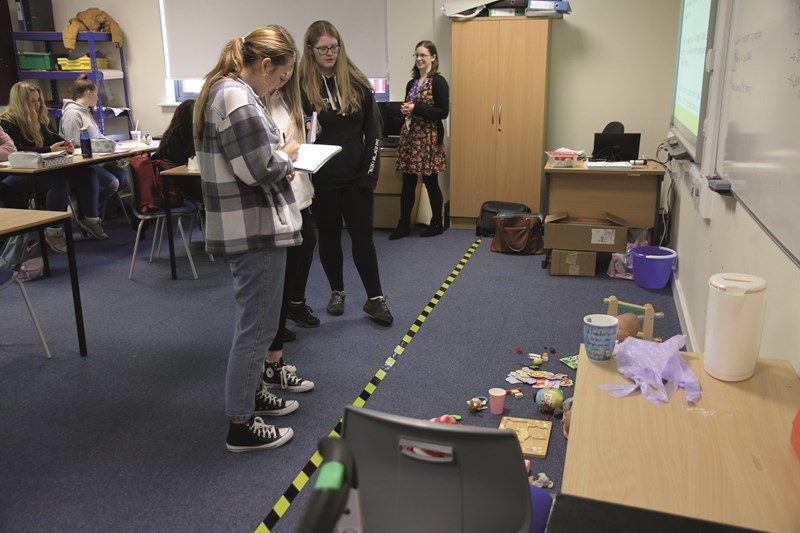
Covid adaptations
For those apprentices still in role, training providers are having to change their methods, delivering the ‘20 per cent off the job’ learning remotely and putting observations on hold since tutors cannot visit settings. Meanwhile, many existing apprentices found themselves furloughed, and under threat of redundancy. ‘We are expecting a significant rise in redundancies toward the end of the year,’ says Mr Ashworth.
In August, the Government launched an online and telephone support service for apprentices who have lost their job, matching them with employers that can help them finish their training. The AELP is calling for additional ‘catch-up funding’ from the Government to support an extension of an affected apprentice’s programme by up to three months, to reflect the loss of training and additional extra support they will require.
Young people and employers could also benefit from the Government’s Kickstart Scheme, which funds employers to create six-month job placements for young people on Universal Credit and at risk of long-term unemployment. To apply directly, an employer must be making 30 or more placements available, but employers can form a group and make a joint application through a Kickstart gateway organisation. Participants may move on to an apprenticeship at any time during or after their job placement, but the two schemes cannot run together.
Times are difficult for many training providers, funded as they are for each apprentice. ‘Some providers are badly impacted, although it depends on the sector – training in health and social care has seen a massive increase,’ says Mr Ashworth. ‘We have not yet seen the impact because a lot of staff are still on furlough; when that scheme ends is when redundancies will kick in. Several large training providers are looking at losing a quarter of their workforce. A lot are hanging on by their fingernails.’
It is not just Covid that is making life difficult for providers. The funding to deliver functional skills qualifications in English and maths as part of an apprenticeship was slashed from £721 to £471 in 2018, and providers are not able to charge employers a top-up. ‘Providers are struggling with that, and a lot are saying come back for an apprenticeship when you have got your maths and English qualifications because we can’t afford to deliver them,’ says Mr Baker.
The Early Years Workforce Commission, a group of sector experts led by CACHE, is developing a series of recommendations on training and CPD in light of the pandemic, which it hopes to publish later this year. The pandemic has provided unique opportunities for furloughed staff to access training from home, and providers have developed new online or blended approaches. Some of this innovation may make training easier to access in the future, but it is clear that the sector must continue to ensure training and qualifications are high-quality, accessible and affordable.
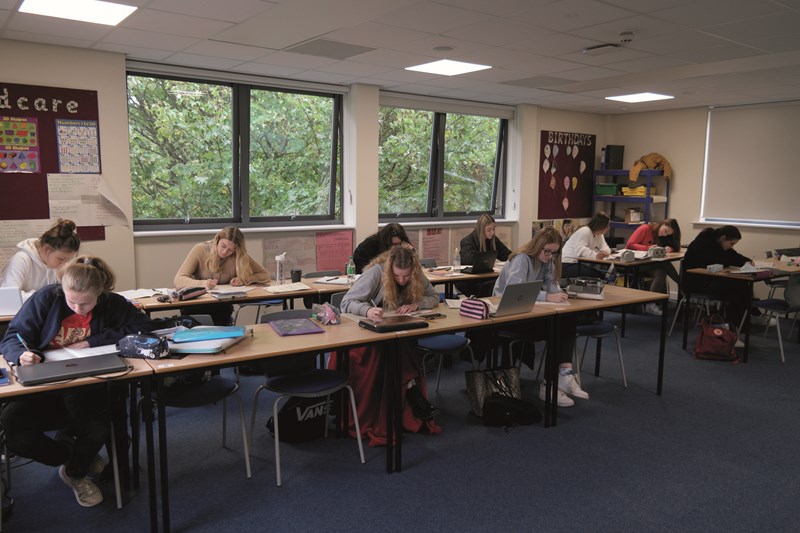
The first T-Level cohort
Last year, 17-year-old Lauren was studying for A-Levels, but she decided to change tack and became part of Cirencester College’s first cohort of Education and Childcare T-Level students.
‘My reasons for choosing the T-Level included that I would be getting the equivalent of three A-Levels at the end of the course,’ she explains. ‘Also, there was lots of practical work within the course, which sounded very appealing to me, and I could continue on to university already having some of the main skills I needed.’
Lauren is one of 17 students, aged between 16 and 19, starting their first year of the T-Level course. The college previously offered the EYE Level 3 diploma, but after current students have completed their first year, the T-Level will be the college’s sole childcare qualification.
‘Students want to go into a variety of things – some want to be early years workers, some teachers in primary schools, some want to be Norland nannies, some have aspirations of running their own nursery,’ says Clare Smith, course leader, Psychology and Childcare.
Cirencester College’s links with local nurseries and pre-schools, coupled with low levels of Covid cases in the area, have meant most students have now got placements, says Ms Smith.
Currently students are attending the college for all of their studies, with childcare and education students in their own bubble – although this may change if further restrictions are needed. Some practical elements of the course have had to be put on hold, such as changing nappies.
‘We have two electronic babies, but we haven’t shown the students yet,’ says Ms Smith. ‘We have not worked out if we can send them home.’ Students are currently learning about safeguarding, with scenarios set up for them to locate risky situations for children.
While it is still early days, Lauren is happy with the course. ‘I think the course is going brilliantly so far,’ she says. ‘The resources are amazing despite Covid and I feel as though it will turn out very successfully.’
Download Now


